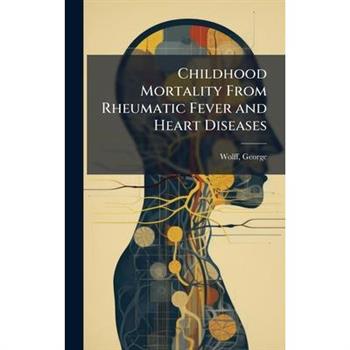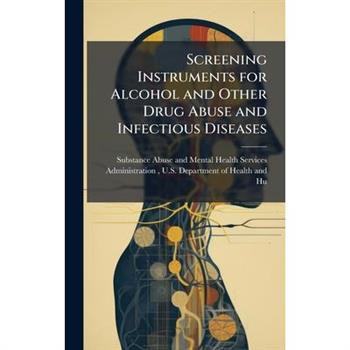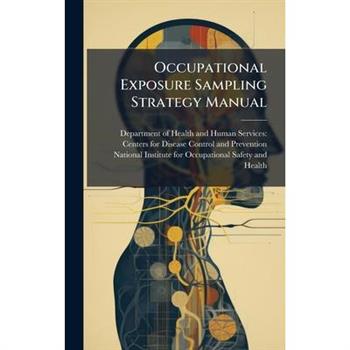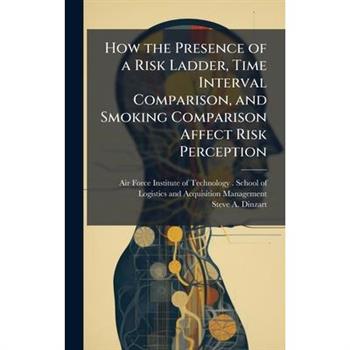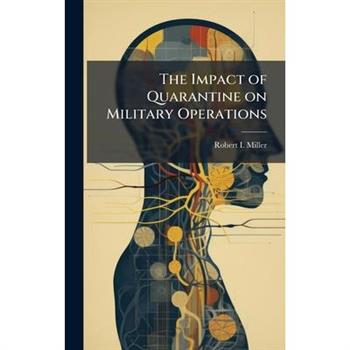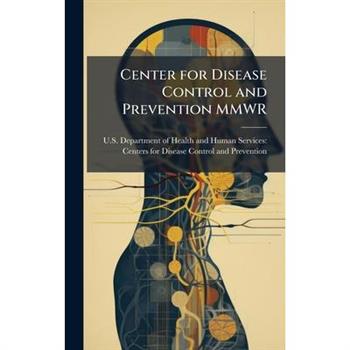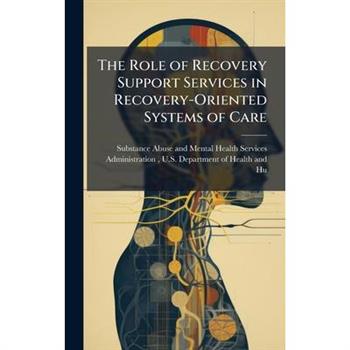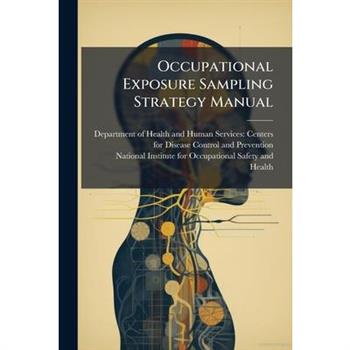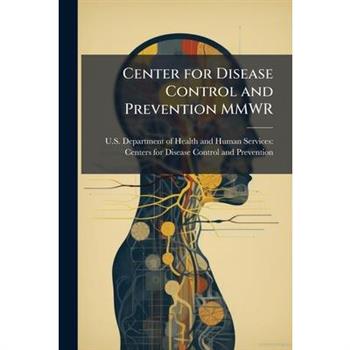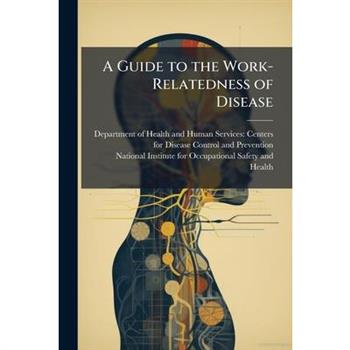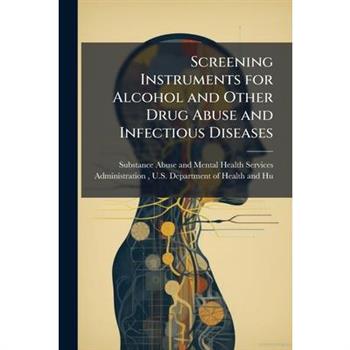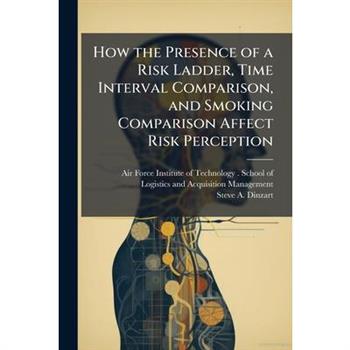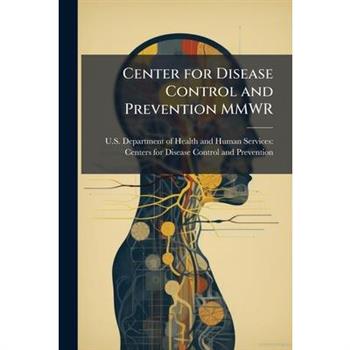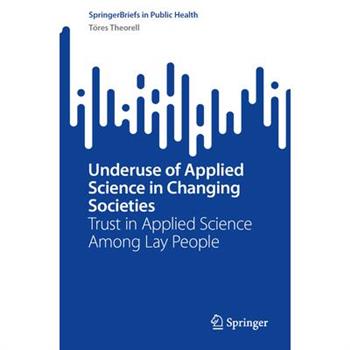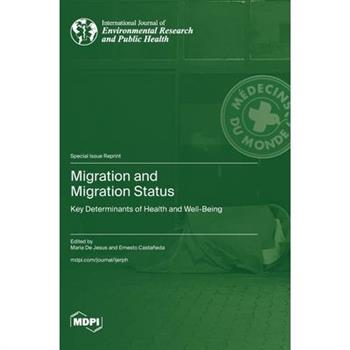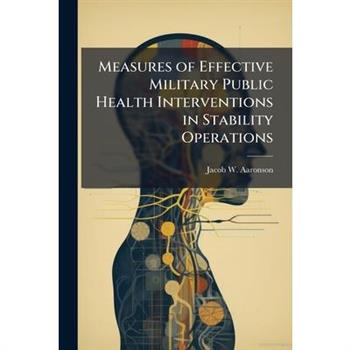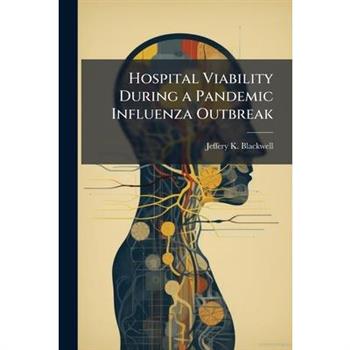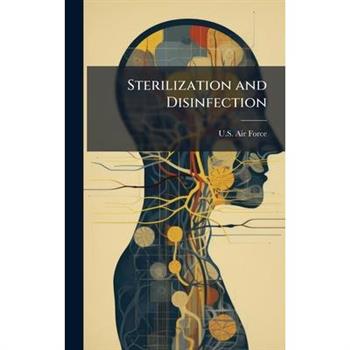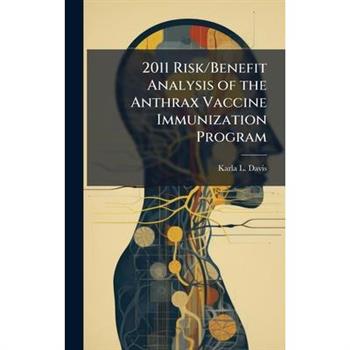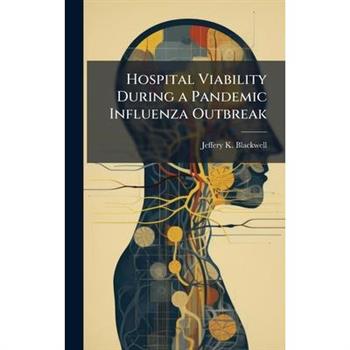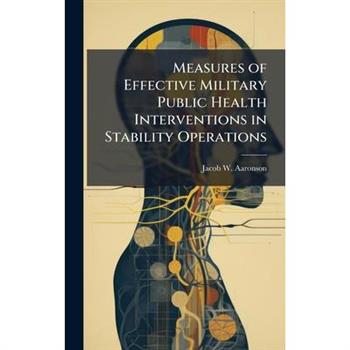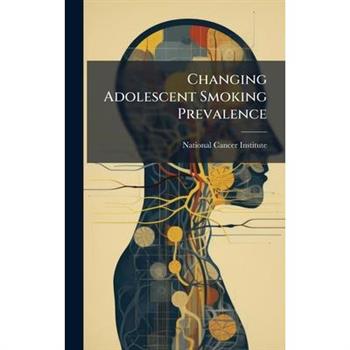Childhood Mortality From Rheumatic Fever and Heart Diseases
"Childhood Mortality From Rheumatic Fever and Heart Diseases" examines the prevalence and impact of these illnesses on child mortality rates. This study by George Wolff offers valuable insights into the public health challenges of the mid-20th century. It provides a detailed look at the statistical data and medical understanding of rheumatic fever and heart diseases as they affected children.This work is a crucial resource for researchers, historians, and medical professionals seeking to understand the historical context of pediatric health and the evolution of treatments for these conditions. It highlights the importance of early detection and intervention in combating diseases that significantly impacted childhood survival rates.This work has been selected by scholars as being culturally important, and is part of the knowledge base of civilization as we know it. This work was reproduced from the original artifact, and remains as true to the original work as possible. Therefore, you will see the original copyright references, library stamps (as most of these works have been housed in our most important libraries around the world), and other notations in the work.This work is in the public domain in the United States of America, and possibly other nations. Within the United States, you may freely copy and distribute this work, as no entity (individual or corporate) has a copyright on the body of the work.As a reproduction of a historical artifact, this work may contain missing or blurred pages, poor pictures, errant marks, etc. Scholars believe, and we concur, that this work is important enough to be preserved, reproduced, and made generally available to the public. We appreciate your support of the preservation process, and thank you for being an important part of keeping this knowledge alive and relevant.
The Worried Well Response to CBRN Events
Chemical, biological, radiological or nuclear (CBRN) weapons in the hands of a terrorist or a rogue state is one of the greatest threats to the security of the United States.2 These weapons of mass destruction (WMDs) can cause catastrophic loss of life and innumerable injuries and challenge the US health system beyond its capacity to provide care. Most hospitals do not have the beds, equipment, staff, or facilities to adequately respond to a WMD event.3,4 Compounding this problem is that many people who have minimal or no exposure to a CBRN agent will seek medical care and slow down medical treatment of genuinely affected patients. These "worried well" 5 patients may comprise as many as 20 times the number of "legitimate" patients6 and may become one of the most difficult aspects in dealing with WMD events.7 This paper is an examination of the worried well phenomenon. It looks at three CBRN events that are often noted for unaffected masses seeking medical care--the Goiania Radiation Incident, the Aum Shinrikyo Attack, and the Anthrax Letters Incident. The purpose of this paper is twofold. First, this paper provides a better understanding of the worried well response. The literature often contains bold proclamations of the problem without a substantial analysis, and researchers cite cases but fail to provide any in-depth study of them.This work has been selected by scholars as being culturally important, and is part of the knowledge base of civilization as we know it. This work was reproduced from the original artifact, and remains as true to the original work as possible. Therefore, you will see the original copyright references, library stamps (as most of these works have been housed in our most important libraries around the world), and other notations in the work.This work is in the public domain in the United States of America, and possibly other nations. Within the United States, you may freely copy and distribute this work, as no entity (individual or corporate) has a copyright on the body of the work.As a reproduction of a historical artifact, this work may contain missing or blurred pages, poor pictures, errant marks, etc. Scholars believe, and we concur, that this work is important enough to be preserved, reproduced, and made generally available to the public. We appreciate your support of the preservation process, and thank you for being an important part of keeping this knowledge alive and relevant.
Recent Advances in Foot Prosthesis and Orthosis
The aim of this reprint is to present the state-of-the-art advances in this area related to foot disorders and their treatments using prostheses, orthosis, and walking aid devices. The chapters provide a comprehensive review of a wide range of foot orthosis and their computational and experimental analysis, and also the design and improvement of current foot-ankle prosthesis. Additionally, the development of novel orthosis using 3D printing and material advances has been discussed, and their personalization and applications in varying gait pathologies have been presented. These topics are anticipated to lead to a thorough understanding of the recent advances in foot prosthesis and orthosis.
NIOSH Pocket Guide to Chemical Hazards
The NIOSH Pocket Guide to Chemical Hazards (NPG) is intended as a source of general industrial hygiene information on several hundred chemicals/classes for workers, employers, and occupational health professionals. The NPG does not contain an analysis of all pertinent data, rather it presents key information and data in abbreviated or tabular form for chemicals or substance groupings (e.g. cyanides, fluorides, manganese compounds) that are found in the work environment. The information found in the NPG should help users recognize and control occupational chemical hazards.This work has been selected by scholars as being culturally important, and is part of the knowledge base of civilization as we know it. This work was reproduced from the original artifact, and remains as true to the original work as possible. Therefore, you will see the original copyright references, library stamps (as most of these works have been housed in our most important libraries around the world), and other notations in the work.This work is in the public domain in the United States of America, and possibly other nations. Within the United States, you may freely copy and distribute this work, as no entity (individual or corporate) has a copyright on the body of the work.As a reproduction of a historical artifact, this work may contain missing or blurred pages, poor pictures, errant marks, etc. Scholars believe, and we concur, that this work is important enough to be preserved, reproduced, and made generally available to the public. We appreciate your support of the preservation process, and thank you for being an important part of keeping this knowledge alive and relevant.
EPA Guide for Infectious Waste Management
The U.S. Environmental Protection Agency (EPA) was introduced on December 2, 1970 by President Richard Nixon. The agency is charged with protecting human health and the environment, by writing and enforcing regulations based on laws passed by Congress. The EPA's struggle to protect health and the environment is seen through each of its official publications. These publications outline new policies, detail problems with enforcing laws, document the need for new legislation, and describe new tactics to use to solve these issues. This collection of publications ranges from historic documents to reports released in the new millennium, and features works like: Bicycle for a Better Environment, Health Effects of Increasing Sulfur Oxides Emissions Draft, and Women and Environmental Health.This work has been selected by scholars as being culturally important, and is part of the knowledge base of civilization as we know it. This work was reproduced from the original artifact, and remains as true to the original work as possible. Therefore, you will see the original copyright references, library stamps (as most of these works have been housed in our most important libraries around the world), and other notations in the work.This work is in the public domain in the United States of America, and possibly other nations. Within the United States, you may freely copy and distribute this work, as no entity (individual or corporate) has a copyright on the body of the work.As a reproduction of a historical artifact, this work may contain missing or blurred pages, poor pictures, errant marks, etc. Scholars believe, and we concur, that this work is important enough to be preserved, reproduced, and made generally available to the public. We appreciate your support of the preservation process, and thank you for being an important part of keeping this knowledge alive and relevant.
Fluoride in Drinking Water
According to the Centers for Disease Control and Prevention (CDC), 67% of the 246 million people in the United States who receive their water from a public water system received fluoridated water in 2000. One of the CDC's national health goals is to increase the proportion of the U.S. population served by community water systems with "optimally" fluoridated drinking water to 75% by 2010. The decision to add fluoride to a water supply is made by local or state governments. The U.S. Public Health Service (PHS) has recommended an optimal fluoridation level in the range of 0.7 to 1.2 milligrams per liter (mg/L) for the prevention of tooth decay.This work has been selected by scholars as being culturally important, and is part of the knowledge base of civilization as we know it. This work was reproduced from the original artifact, and remains as true to the original work as possible. Therefore, you will see the original copyright references, library stamps (as most of these works have been housed in our most important libraries around the world), and other notations in the work.This work is in the public domain in the United States of America, and possibly other nations. Within the United States, you may freely copy and distribute this work, as no entity (individual or corporate) has a copyright on the body of the work.As a reproduction of a historical artifact, this work may contain missing or blurred pages, poor pictures, errant marks, etc. Scholars believe, and we concur, that this work is important enough to be preserved, reproduced, and made generally available to the public. We appreciate your support of the preservation process, and thank you for being an important part of keeping this knowledge alive and relevant.
Pandemic Influenza
This paper examines influenza pandemics and the operational readiness implications they brings to the US military. The paper will examine a historical example of a pandemic that had devastating effects on the military; the Spanish Flu of 1918. Pandemic predictive models will show how an influenza pandemic will affect military operational readiness. And finally, the paper will discuss ways to mitigate a pandemic's effects on operational readiness.This work has been selected by scholars as being culturally important, and is part of the knowledge base of civilization as we know it. This work was reproduced from the original artifact, and remains as true to the original work as possible. Therefore, you will see the original copyright references, library stamps (as most of these works have been housed in our most important libraries around the world), and other notations in the work.This work is in the public domain in the United States of America, and possibly other nations. Within the United States, you may freely copy and distribute this work, as no entity (individual or corporate) has a copyright on the body of the work.As a reproduction of a historical artifact, this work may contain missing or blurred pages, poor pictures, errant marks, etc. Scholars believe, and we concur, that this work is important enough to be preserved, reproduced, and made generally available to the public. We appreciate your support of the preservation process, and thank you for being an important part of keeping this knowledge alive and relevant.
Screening Instruments for Alcohol and Other Drug Abuse and Infectious Diseases
Helps alcohol and drug abuse treatment providers assess patients and clients presenting with problems related to alcohol and drug abuse and communicable diseases. Describes the development of two screening instruments and offers guidelines for training staff.This work has been selected by scholars as being culturally important, and is part of the knowledge base of civilization as we know it. This work was reproduced from the original artifact, and remains as true to the original work as possible. Therefore, you will see the original copyright references, library stamps (as most of these works have been housed in our most important libraries around the world), and other notations in the work.This work is in the public domain in the United States of America, and possibly other nations. Within the United States, you may freely copy and distribute this work, as no entity (individual or corporate) has a copyright on the body of the work.As a reproduction of a historical artifact, this work may contain missing or blurred pages, poor pictures, errant marks, etc. Scholars believe, and we concur, that this work is important enough to be preserved, reproduced, and made generally available to the public. We appreciate your support of the preservation process, and thank you for being an important part of keeping this knowledge alive and relevant.
Biological Weapons, the Poor Man's Nuke
Biological warfare is one leg of the triad of weapons of mass destruction (coupled with nuclear and chemical weapons). Biological weapons pose a significant threat to the United States military and public population across the spectrum of conflict. There is, however, little common knowledge of the insidious yet devastating potential of these weapons. This paper is written for the lay (that is non-technical) reader, outlining the history, threat, and possible countermeasures related to biological warfare agents. The intent is to heighten the awareness level regarding biological warfare as a military and terrorist threat.This work has been selected by scholars as being culturally important, and is part of the knowledge base of civilization as we know it. This work was reproduced from the original artifact, and remains as true to the original work as possible. Therefore, you will see the original copyright references, library stamps (as most of these works have been housed in our most important libraries around the world), and other notations in the work.This work is in the public domain in the United States of America, and possibly other nations. Within the United States, you may freely copy and distribute this work, as no entity (individual or corporate) has a copyright on the body of the work.As a reproduction of a historical artifact, this work may contain missing or blurred pages, poor pictures, errant marks, etc. Scholars believe, and we concur, that this work is important enough to be preserved, reproduced, and made generally available to the public. We appreciate your support of the preservation process, and thank you for being an important part of keeping this knowledge alive and relevant.
Occupational Exposure Sampling Strategy Manual
One of the most important steps toward reducing the risk of impaired health resulting from inhalation of toxic chemicals is the measurement and evaluation of employee exposure to these chemicals. The Occupational Safety and Health Act of 1970 recognizes the critical importance of employee exposure measurements. Section 6(b)(7) of the Act requires that occupational safety and health standards promulgated by the Secretary of Labor provide for monitoring or measuring employee exposure at such locations and in such a manner as may be necessary for the protection of employees. Section 8(c)(3) of the Act directs regulations be issued requiring employers to maintain accurate records of employee exposure to those potentially toxic materials that are required to be monitored under Section 6.This work has been selected by scholars as being culturally important, and is part of the knowledge base of civilization as we know it. This work was reproduced from the original artifact, and remains as true to the original work as possible. Therefore, you will see the original copyright references, library stamps (as most of these works have been housed in our most important libraries around the world), and other notations in the work.This work is in the public domain in the United States of America, and possibly other nations. Within the United States, you may freely copy and distribute this work, as no entity (individual or corporate) has a copyright on the body of the work.As a reproduction of a historical artifact, this work may contain missing or blurred pages, poor pictures, errant marks, etc. Scholars believe, and we concur, that this work is important enough to be preserved, reproduced, and made generally available to the public. We appreciate your support of the preservation process, and thank you for being an important part of keeping this knowledge alive and relevant.
How the Presence of a Risk Ladder, Time Interval Comparison, and Smoking Comparison Affect Risk Perception
The objective of this study is to increase the knowledge available on the relative effectiveness of risk ladders as a presentation format for explaining risk magnitudes to the public. An experiment was conducted to test the hypotheses that an individual's risk perception varies with the presence of a risk ladder, time interval comparison, and smoking comparison. Subjects were AFIT Professional Continuing Education students, asked to assume a particular level of a health hazard in their homes, to read a brochure explaining the hazard, and then to complete a questionnaire. Results demonstrated that subjects exposed to a graphical risk ladder perceived lower levels of risk than subjects not exposed to a risk ladder. Also, the study found that time interval and smoking comparisons did not significantly affect the risk perception of the participants. These findings suggest that the discontinuity between expert views and the public perceptions of health risk can be bridged by effectively utilizing risk ladders when presenting risk magnitudes to the public.This work has been selected by scholars as being culturally important, and is part of the knowledge base of civilization as we know it. This work was reproduced from the original artifact, and remains as true to the original work as possible. Therefore, you will see the original copyright references, library stamps (as most of these works have been housed in our most important libraries around the world), and other notations in the work.This work is in the public domain in the United States of America, and possibly other nations. Within the United States, you may freely copy and distribute this work, as no entity (individual or corporate) has a copyright on the body of the work.As a reproduction of a historical artifact, this work may contain missing or blurred pages, poor pictures, errant marks, etc. Scholars believe, and we concur, that this work is important enough to be preserved, reproduced, and made generally available to the public. We appreciate your support of the preservation process, and thank you for being an important part of keeping this knowledge alive and relevant.
The Impact of Quarantine on Military Operations
Quarantine is an effective public health measure that may be the best and last option for disease containment, especially when the diagnosis has not been established or no treatment plan exists for a given disease. The decision process for an installation commander must be different than in a civilian setting if the goal is to maintain operational capability. The focus must be on the initial 72 hours since the ramifications of a delay in action could be devastating to successful mission accomplishment and may result in unintentional global spread of disease. Given the inherent "fog of war," it may not be clear whether an outbreak has occurred, however early use of quarantine implementing the full spectrum of options gives a commander the best opportunity for disease containment while maintaining operational capability. This strategy is not dependent on the source or type of biologic agent encountered, but should be equally effective for a terrorist attack or a natural disease outbreak.This work has been selected by scholars as being culturally important, and is part of the knowledge base of civilization as we know it. This work was reproduced from the original artifact, and remains as true to the original work as possible. Therefore, you will see the original copyright references, library stamps (as most of these works have been housed in our most important libraries around the world), and other notations in the work.This work is in the public domain in the United States of America, and possibly other nations. Within the United States, you may freely copy and distribute this work, as no entity (individual or corporate) has a copyright on the body of the work.As a reproduction of a historical artifact, this work may contain missing or blurred pages, poor pictures, errant marks, etc. Scholars believe, and we concur, that this work is important enough to be preserved, reproduced, and made generally available to the public. We appreciate your support of the preservation process, and thank you for being an important part of keeping this knowledge alive and relevant.
Homeland Biological Warfare Consequence Management
In recent years, concern over potential terrorist WMD acts in the U.S has blossomed. Since 1995, the U.S. has passed legislation and published presidential decision directives designed to address the U.S. capabilities to respond to such an incident. Additionally, millions of dollars have been spent on domestic preparedness. Yet the numerous agencies involved (FEMA, DoJ, DoD, HHS, etc.) make a comprehensive, organized solution to the problem difficult. Focusing on the consequence management functions (incident identification, unity of effort, containment, treatment, security, fatality management and social response), the capabilities and shortfalls of local, state and federal assets are examined. This paper highlights significant progress in areas including treatment supply stockpiles and surge capability by the federal government and National Guard to support local efforts.This work has been selected by scholars as being culturally important, and is part of the knowledge base of civilization as we know it. This work was reproduced from the original artifact, and remains as true to the original work as possible. Therefore, you will see the original copyright references, library stamps (as most of these works have been housed in our most important libraries around the world), and other notations in the work.This work is in the public domain in the United States of America, and possibly other nations. Within the United States, you may freely copy and distribute this work, as no entity (individual or corporate) has a copyright on the body of the work.As a reproduction of a historical artifact, this work may contain missing or blurred pages, poor pictures, errant marks, etc. Scholars believe, and we concur, that this work is important enough to be preserved, reproduced, and made generally available to the public. We appreciate your support of the preservation process, and thank you for being an important part of keeping this knowledge alive and relevant.
Combating Biological Terrorism From Imported Food
There is a threat that a terrorist or terrorist organization will use access to the US food supply to kill or sicken Americans by contaminating imported food products from Mexico. The food that Americans eat is coming more and more often from foreign countries such as Mexico. Foodborne diseases infect nearly fifty million people in the US each year, resulting in over three thousand deaths. There are many terrorist organizations that would like to deliberately contaminate American food. Drug cartels and terrorist organizations currently operate in Mexico, one of the leading food importers into the US. The purpose of this research was to determine what actions should be taken in response to the threat of biological terrorism through deliberately-contaminated food supplied from Mexico. While Americans enjoy the safest and most abundant food supply in the world, this thesis made several recommendations. First, laboratories and public health officers should continue to increase their ability to detect and identify foodborne outbreaks. Second, consumers who become sickened by foodborne pathogens should report their sickness to either the local hospital or to the local health department even if they choose to treat the sickness at home. Third, the US should increase the production of food that Americans eat with the goal of producing a self sufficient food supply. Fourth, consumers should be better informed on food safety issues to minimize the effects of bioterrorism.This work has been selected by scholars as being culturally important, and is part of the knowledge base of civilization as we know it. This work was reproduced from the original artifact, and remains as true to the original work as possible. Therefore, you will see the original copyright references, library stamps (as most of these works have been housed in our most important libraries around the world), and other notations in the work.This work is in the public domain in the United States of America, and possibly other nations. Within the United States, you may freely copy and distribute this work, as no entity (individual or corporate) has a copyright on the body of the work.As a reproduction of a historical artifact, this work may contain missing or blurred pages, poor pictures, errant marks, etc. Scholars believe, and we concur, that this work is important enough to be preserved, reproduced, and made generally available to the public. We appreciate your support of the preservation process, and thank you for being an important part of keeping this knowledge alive and relevant.
Tb Med 524
The United States Army Publishing Directorate is the Army's leader in publishing and delivering informational products worldwide. Their main mission is to supply official authenticated information to enhance the readiness of the total force. Some product topics include: Army Regulations, Engineering Technical Manuals, Administrative Publications, Circulars and Pamphlets. This is one of their documents.This work has been selected by scholars as being culturally important, and is part of the knowledge base of civilization as we know it. This work was reproduced from the original artifact, and remains as true to the original work as possible. Therefore, you will see the original copyright references, library stamps (as most of these works have been housed in our most important libraries around the world), and other notations in the work.This work is in the public domain in the United States of America, and possibly other nations. Within the United States, you may freely copy and distribute this work, as no entity (individual or corporate) has a copyright on the body of the work.As a reproduction of a historical artifact, this work may contain missing or blurred pages, poor pictures, errant marks, etc. Scholars believe, and we concur, that this work is important enough to be preserved, reproduced, and made generally available to the public. We appreciate your support of the preservation process, and thank you for being an important part of keeping this knowledge alive and relevant.
Center for Disease Control and Prevention MMWR
The Morbidity and Mortality Weekly Report (MMWR) series is prepared by the Centers for DiseaseControl and Prevention (CDC). Often called "the voice of CDC," the MMWR series is the agency'sprimary vehicle for scientific publication of timely, reliable, authoritative, accurate, objective, anduseful public health information and recommendations. These reports discuss topics suck as Anthrax, Tobacco Use, Rabies, Hepatitis, and much more. The documents are very valuable to physicians, nurses, public health practitioners, epidemiologists and other scientists, researchers, educators, andlaboratory technicians. This is one of their publications.This work has been selected by scholars as being culturally important, and is part of the knowledge base of civilization as we know it. This work was reproduced from the original artifact, and remains as true to the original work as possible. Therefore, you will see the original copyright references, library stamps (as most of these works have been housed in our most important libraries around the world), and other notations in the work.This work is in the public domain in the United States of America, and possibly other nations. Within the United States, you may freely copy and distribute this work, as no entity (individual or corporate) has a copyright on the body of the work.As a reproduction of a historical artifact, this work may contain missing or blurred pages, poor pictures, errant marks, etc. Scholars believe, and we concur, that this work is important enough to be preserved, reproduced, and made generally available to the public. We appreciate your support of the preservation process, and thank you for being an important part of keeping this knowledge alive and relevant.
The Role of Recovery Support Services in Recovery-Oriented Systems of Care
Describes substance abuse recovery support services, models of recovery-oriented systems of care in Connecticut and Arizona, barriers and challenges, and next steps for activities and products to sustain the ongoing development of recovery support services.This work has been selected by scholars as being culturally important, and is part of the knowledge base of civilization as we know it. This work was reproduced from the original artifact, and remains as true to the original work as possible. Therefore, you will see the original copyright references, library stamps (as most of these works have been housed in our most important libraries around the world), and other notations in the work.This work is in the public domain in the United States of America, and possibly other nations. Within the United States, you may freely copy and distribute this work, as no entity (individual or corporate) has a copyright on the body of the work.As a reproduction of a historical artifact, this work may contain missing or blurred pages, poor pictures, errant marks, etc. Scholars believe, and we concur, that this work is important enough to be preserved, reproduced, and made generally available to the public. We appreciate your support of the preservation process, and thank you for being an important part of keeping this knowledge alive and relevant.
Occupational Exposure Sampling Strategy Manual
One of the most important steps toward reducing the risk of impaired health resulting from inhalation of toxic chemicals is the measurement and evaluation of employee exposure to these chemicals. The Occupational Safety and Health Act of 1970 recognizes the critical importance of employee exposure measurements. Section 6(b)(7) of the Act requires that occupational safety and health standards promulgated by the Secretary of Labor provide for monitoring or measuring employee exposure at such locations and in such a manner as may be necessary for the protection of employees. Section 8(c)(3) of the Act directs regulations be issued requiring employers to maintain accurate records of employee exposure to those potentially toxic materials that are required to be monitored under Section 6.This work has been selected by scholars as being culturally important, and is part of the knowledge base of civilization as we know it. This work was reproduced from the original artifact, and remains as true to the original work as possible. Therefore, you will see the original copyright references, library stamps (as most of these works have been housed in our most important libraries around the world), and other notations in the work.This work is in the public domain in the United States of America, and possibly other nations. Within the United States, you may freely copy and distribute this work, as no entity (individual or corporate) has a copyright on the body of the work.As a reproduction of a historical artifact, this work may contain missing or blurred pages, poor pictures, errant marks, etc. Scholars believe, and we concur, that this work is important enough to be preserved, reproduced, and made generally available to the public. We appreciate your support of the preservation process, and thank you for being an important part of keeping this knowledge alive and relevant.
NIOSH Spirometry Training Guide
The NIOSH Spirometry Training Guide was prepared for use as an adjunct or supplement to a NIOSH approved course on spirometry. It is not intended to serve as a self-instructional package. Learning spirometry requires observation, demonstration, and hands-on practice. This Guide is intended for individuals who are responsible for conducting spirometry in the workplace. It will be of special interest to occupational health physicians, nurses, and other health professionals.This work has been selected by scholars as being culturally important, and is part of the knowledge base of civilization as we know it. This work was reproduced from the original artifact, and remains as true to the original work as possible. Therefore, you will see the original copyright references, library stamps (as most of these works have been housed in our most important libraries around the world), and other notations in the work.This work is in the public domain in the United States of America, and possibly other nations. Within the United States, you may freely copy and distribute this work, as no entity (individual or corporate) has a copyright on the body of the work.As a reproduction of a historical artifact, this work may contain missing or blurred pages, poor pictures, errant marks, etc. Scholars believe, and we concur, that this work is important enough to be preserved, reproduced, and made generally available to the public. We appreciate your support of the preservation process, and thank you for being an important part of keeping this knowledge alive and relevant.
Biological Weapons Systems
The purpose of this study is to examine a proposal to utilize biological weapons systems in present day military situations. The study is developed around the question: why not employ biological weapons systems, now?This work has been selected by scholars as being culturally important, and is part of the knowledge base of civilization as we know it. This work was reproduced from the original artifact, and remains as true to the original work as possible. Therefore, you will see the original copyright references, library stamps (as most of these works have been housed in our most important libraries around the world), and other notations in the work.This work is in the public domain in the United States of America, and possibly other nations. Within the United States, you may freely copy and distribute this work, as no entity (individual or corporate) has a copyright on the body of the work.As a reproduction of a historical artifact, this work may contain missing or blurred pages, poor pictures, errant marks, etc. Scholars believe, and we concur, that this work is important enough to be preserved, reproduced, and made generally available to the public. We appreciate your support of the preservation process, and thank you for being an important part of keeping this knowledge alive and relevant.
Center for Disease Control and Prevention MMWR
The Morbidity and Mortality Weekly Report (MMWR) series is prepared by the Centers for DiseaseControl and Prevention (CDC). Often called "the voice of CDC," the MMWR series is the agency'sprimary vehicle for scientific publication of timely, reliable, authoritative, accurate, objective, anduseful public health information and recommendations. These reports discuss topics suck as Anthrax, Tobacco Use, Rabies, Hepatitis, and much more. The documents are very valuable to physicians, nurses, public health practitioners, epidemiologists and other scientists, researchers, educators, andlaboratory technicians. This is one of their publications.This work has been selected by scholars as being culturally important, and is part of the knowledge base of civilization as we know it. This work was reproduced from the original artifact, and remains as true to the original work as possible. Therefore, you will see the original copyright references, library stamps (as most of these works have been housed in our most important libraries around the world), and other notations in the work.This work is in the public domain in the United States of America, and possibly other nations. Within the United States, you may freely copy and distribute this work, as no entity (individual or corporate) has a copyright on the body of the work.As a reproduction of a historical artifact, this work may contain missing or blurred pages, poor pictures, errant marks, etc. Scholars believe, and we concur, that this work is important enough to be preserved, reproduced, and made generally available to the public. We appreciate your support of the preservation process, and thank you for being an important part of keeping this knowledge alive and relevant.
The Confidentiality of Alcohol and Drug Abuse Patient Records Regulation and the HIPAA Privacy Rule
Explains how the HIPAA health information privacy rule applies to substance abuse treatment programs and affects the confidentiality of records for alcohol abuse and drug abuse patients. Includes text from HIPAA and earlier Federal confidentiality regulations.This work has been selected by scholars as being culturally important, and is part of the knowledge base of civilization as we know it. This work was reproduced from the original artifact, and remains as true to the original work as possible. Therefore, you will see the original copyright references, library stamps (as most of these works have been housed in our most important libraries around the world), and other notations in the work.This work is in the public domain in the United States of America, and possibly other nations. Within the United States, you may freely copy and distribute this work, as no entity (individual or corporate) has a copyright on the body of the work.As a reproduction of a historical artifact, this work may contain missing or blurred pages, poor pictures, errant marks, etc. Scholars believe, and we concur, that this work is important enough to be preserved, reproduced, and made generally available to the public. We appreciate your support of the preservation process, and thank you for being an important part of keeping this knowledge alive and relevant.
Triple Threat
Military forces in Sub-Saharan Africa, including peacekeepers, rank among the highest population groups most affected by sexually transmitted infections (STIs), including HIV. These individuals are called upon to protect national security from threats such as terrorism, crime, internal and external conflict; serving at home and across national borders. For armed forces personnel, several key factors make them vulnerable to STIs: the work environment, mobility, and age. These risk factors expose all the population to HIV/AIDS infection, military and civilians. According to the Joint UN Program on AIDS (UNAIDS), soldiers are two to five times more likely to contract STIs than the civilian population. In fact, during conflict, the rate of STI infection can increase significantly. HIV/AIDS pandemic in Sub-Saharan Africa represents an obvious danger to security; if left unchecked, could compromise military effectiveness, which could then lead to instability within the region.This work has been selected by scholars as being culturally important, and is part of the knowledge base of civilization as we know it. This work was reproduced from the original artifact, and remains as true to the original work as possible. Therefore, you will see the original copyright references, library stamps (as most of these works have been housed in our most important libraries around the world), and other notations in the work.This work is in the public domain in the United States of America, and possibly other nations. Within the United States, you may freely copy and distribute this work, as no entity (individual or corporate) has a copyright on the body of the work.As a reproduction of a historical artifact, this work may contain missing or blurred pages, poor pictures, errant marks, etc. Scholars believe, and we concur, that this work is important enough to be preserved, reproduced, and made generally available to the public. We appreciate your support of the preservation process, and thank you for being an important part of keeping this knowledge alive and relevant.
A Guide to the Work-Relatedness of Disease
This Criteria Document is contained in PDF files, for ease of handling. The following table of contents allows you to open or download the files containing the sections of the document you want to see.This work has been selected by scholars as being culturally important, and is part of the knowledge base of civilization as we know it. This work was reproduced from the original artifact, and remains as true to the original work as possible. Therefore, you will see the original copyright references, library stamps (as most of these works have been housed in our most important libraries around the world), and other notations in the work.This work is in the public domain in the United States of America, and possibly other nations. Within the United States, you may freely copy and distribute this work, as no entity (individual or corporate) has a copyright on the body of the work.As a reproduction of a historical artifact, this work may contain missing or blurred pages, poor pictures, errant marks, etc. Scholars believe, and we concur, that this work is important enough to be preserved, reproduced, and made generally available to the public. We appreciate your support of the preservation process, and thank you for being an important part of keeping this knowledge alive and relevant.
Screening Instruments for Alcohol and Other Drug Abuse and Infectious Diseases
Helps alcohol and drug abuse treatment providers assess patients and clients presenting with problems related to alcohol and drug abuse and communicable diseases. Describes the development of two screening instruments and offers guidelines for training staff.This work has been selected by scholars as being culturally important, and is part of the knowledge base of civilization as we know it. This work was reproduced from the original artifact, and remains as true to the original work as possible. Therefore, you will see the original copyright references, library stamps (as most of these works have been housed in our most important libraries around the world), and other notations in the work.This work is in the public domain in the United States of America, and possibly other nations. Within the United States, you may freely copy and distribute this work, as no entity (individual or corporate) has a copyright on the body of the work.As a reproduction of a historical artifact, this work may contain missing or blurred pages, poor pictures, errant marks, etc. Scholars believe, and we concur, that this work is important enough to be preserved, reproduced, and made generally available to the public. We appreciate your support of the preservation process, and thank you for being an important part of keeping this knowledge alive and relevant.
The Worried Well Response to CBRN Events
Chemical, biological, radiological or nuclear (CBRN) weapons in the hands of a terrorist or a rogue state is one of the greatest threats to the security of the United States.2 These weapons of mass destruction (WMDs) can cause catastrophic loss of life and innumerable injuries and challenge the US health system beyond its capacity to provide care. Most hospitals do not have the beds, equipment, staff, or facilities to adequately respond to a WMD event.3,4 Compounding this problem is that many people who have minimal or no exposure to a CBRN agent will seek medical care and slow down medical treatment of genuinely affected patients. These "worried well" 5 patients may comprise as many as 20 times the number of "legitimate" patients6 and may become one of the most difficult aspects in dealing with WMD events.7 This paper is an examination of the worried well phenomenon. It looks at three CBRN events that are often noted for unaffected masses seeking medical care--the Goiania Radiation Incident, the Aum Shinrikyo Attack, and the Anthrax Letters Incident. The purpose of this paper is twofold. First, this paper provides a better understanding of the worried well response. The literature often contains bold proclamations of the problem without a substantial analysis, and researchers cite cases but fail to provide any in-depth study of them.This work has been selected by scholars as being culturally important, and is part of the knowledge base of civilization as we know it. This work was reproduced from the original artifact, and remains as true to the original work as possible. Therefore, you will see the original copyright references, library stamps (as most of these works have been housed in our most important libraries around the world), and other notations in the work.This work is in the public domain in the United States of America, and possibly other nations. Within the United States, you may freely copy and distribute this work, as no entity (individual or corporate) has a copyright on the body of the work.As a reproduction of a historical artifact, this work may contain missing or blurred pages, poor pictures, errant marks, etc. Scholars believe, and we concur, that this work is important enough to be preserved, reproduced, and made generally available to the public. We appreciate your support of the preservation process, and thank you for being an important part of keeping this knowledge alive and relevant.
How the Presence of a Risk Ladder, Time Interval Comparison, and Smoking Comparison Affect Risk Perception
The objective of this study is to increase the knowledge available on the relative effectiveness of risk ladders as a presentation format for explaining risk magnitudes to the public. An experiment was conducted to test the hypotheses that an individual's risk perception varies with the presence of a risk ladder, time interval comparison, and smoking comparison. Subjects were AFIT Professional Continuing Education students, asked to assume a particular level of a health hazard in their homes, to read a brochure explaining the hazard, and then to complete a questionnaire. Results demonstrated that subjects exposed to a graphical risk ladder perceived lower levels of risk than subjects not exposed to a risk ladder. Also, the study found that time interval and smoking comparisons did not significantly affect the risk perception of the participants. These findings suggest that the discontinuity between expert views and the public perceptions of health risk can be bridged by effectively utilizing risk ladders when presenting risk magnitudes to the public.This work has been selected by scholars as being culturally important, and is part of the knowledge base of civilization as we know it. This work was reproduced from the original artifact, and remains as true to the original work as possible. Therefore, you will see the original copyright references, library stamps (as most of these works have been housed in our most important libraries around the world), and other notations in the work.This work is in the public domain in the United States of America, and possibly other nations. Within the United States, you may freely copy and distribute this work, as no entity (individual or corporate) has a copyright on the body of the work.As a reproduction of a historical artifact, this work may contain missing or blurred pages, poor pictures, errant marks, etc. Scholars believe, and we concur, that this work is important enough to be preserved, reproduced, and made generally available to the public. We appreciate your support of the preservation process, and thank you for being an important part of keeping this knowledge alive and relevant.
Center for Disease Control and Prevention MMWR
The Morbidity and Mortality Weekly Report (MMWR) series is prepared by the Centers for DiseaseControl and Prevention (CDC). Often called "the voice of CDC," the MMWR series is the agency'sprimary vehicle for scientific publication of timely, reliable, authoritative, accurate, objective, anduseful public health information and recommendations. These reports discuss topics suck as Anthrax, Tobacco Use, Rabies, Hepatitis, and much more. The documents are very valuable to physicians, nurses, public health practitioners, epidemiologists and other scientists, researchers, educators, andlaboratory technicians. This is one of their publications.This work has been selected by scholars as being culturally important, and is part of the knowledge base of civilization as we know it. This work was reproduced from the original artifact, and remains as true to the original work as possible. Therefore, you will see the original copyright references, library stamps (as most of these works have been housed in our most important libraries around the world), and other notations in the work.This work is in the public domain in the United States of America, and possibly other nations. Within the United States, you may freely copy and distribute this work, as no entity (individual or corporate) has a copyright on the body of the work.As a reproduction of a historical artifact, this work may contain missing or blurred pages, poor pictures, errant marks, etc. Scholars believe, and we concur, that this work is important enough to be preserved, reproduced, and made generally available to the public. We appreciate your support of the preservation process, and thank you for being an important part of keeping this knowledge alive and relevant.
Counter-Bioterrorism
This paper discusses challenges the US intelligence community faces in helping to counter bioterrorism a real and emerging threat that has the potential to cause mass destruction in the United States, It includes background material on a number of issues related to the threat of bioterrorism to help the reader understand why the bioterrorism threat is real, why it may be growing, and why it could potentially inflict mass destruction, As part of this process the paper reviews key factors associated with bioterrorism threat analysis.This work has been selected by scholars as being culturally important, and is part of the knowledge base of civilization as we know it. This work was reproduced from the original artifact, and remains as true to the original work as possible. Therefore, you will see the original copyright references, library stamps (as most of these works have been housed in our most important libraries around the world), and other notations in the work.This work is in the public domain in the United States of America, and possibly other nations. Within the United States, you may freely copy and distribute this work, as no entity (individual or corporate) has a copyright on the body of the work.As a reproduction of a historical artifact, this work may contain missing or blurred pages, poor pictures, errant marks, etc. Scholars believe, and we concur, that this work is important enough to be preserved, reproduced, and made generally available to the public. We appreciate your support of the preservation process, and thank you for being an important part of keeping this knowledge alive and relevant.
Underuse of Applied Science in Changing Societies
This book discusses the fact that applied science is underused in modern societies. The problem is discussed both from external points of view (trust among lay people, attitudes among politicians) and from the inside (recruitment of researchers, research education, violations of scientific rules, financial processes). The book concludes with suggested solutions. Democracy is threatened in many countries in the free world. The same is true of applied science. It could be argued that in a world situation in which increasing numbers of people distrust politicians, applied science would be the sector people should turn to for advice. However, this seems to occur to a decreasing extent. Increasing numbers of results are produced by applied scientists and these results often diverge. In that situation, laymen tend to select the research results that confirm their own ideas. In such a situation one could ask whether it is meaningful to have applied science and to allocate money to it. There are threats to applied science coming from external sources, with politicians and higher administration increasingly disregarding applied science, but also from the inside. Researchers reporting results dishonestly or in exaggerated ways and researchers who avoid results that do not confirm their own hypotheses are eroding the trust in applied science. This book, which uses Sweden, a small European country with old and strong democratic and scientific traditions, as an empirical example, puts all the external and internal problems surrounding applied science in one context. Among the topics covered: Introduction, why do people not listen? Production and producers Research students How does applied science operate? Communication with society Examples of situations in which applied science should have been used more Solutions Conclusions Underuse of Applied Science in Changing Societies: Trust in Applied Science Among Lay People is an essential resource for researchers, research students, and research teachers in psychosomatic medicine, psychiatry, behavioral medicine, social medicine, psychology, sociology, social work, nursing, and public health. Societal actors also would find the book a useful resource for their work.
Big Data and Artificial Intelligence
The Topic "Big Data and Artificial Intelligence" explores the transformative impact of AI and Big Data across diverse domains, highlighting their role as catalysts for innovation, decision-making, and business model evolution. This reprint presents cutting-edge research, covering the full spectrum of AI and Big Data applications, from theoretical foundations to real-world implementations. Key topics include enabling technologies such as machine learning, neural networks, natural language processing, AI agents, analytics, and distributed computing. Methodological advancements, strategic frameworks, and models are examined, addressing areas such as sustainable development, industry innovation, ethical considerations, and social impact. Additionally, the collection showcases best practices, R&D project outcomes, and industry-government collaborations, offering valuable insights into the latest developments in AI-driven decision-making and data ecosystems. Edited by Prof. Miltiadis D. Lytras and Prof. Andreea Claudia Serban, this reprint compiles high-quality contributions from leading researchers and practitioners, providing a comprehensive resource for academics, industry experts, and policymakers interested in the evolving landscape of artificial intelligence and Big Data. The participating journals include Big Data and Cognitive Computing, Future Internet, Information, Remote Sensing, and Sustainability.
Migration and Migration Status
The experience of migration and immigration are key determinants of health and overall well-being. Social inequities and contexts of poverty and violence all significantly impact migrants' health and well-being. Furthermore, migrants are vulnerable to isolation, exclusion, discrimination, xenophobia, and insecurity, all of which exacerbate their health challenges. Migrants in irregular or undocumented situations are especially at risk of exploitation, trafficking, detention, and deportation. These social determinants of health have an adverse effect on migrant health. This Reprint provides empirical evidence, contextual insights, and critical analyses that explore the links between migration, migration status, and health and well-being. By adopting an interdisciplinary, international, and multi-method approach, the issue features contributions from scholars based in the United States, Mexico, Chile, Australia, France, Spain, and China. These scholars represent diverse fields including sociology, psychology, anthropology, geography, political science, international relations, medicine, public health, social work, and Latino and Latin American Studies. Through these varied perspectives, this Reprint provides evidence about how social and immigration policies have a direct effect on health and life expectancy.
Physicians' Handbook on Medical Certification of Death
The Centers for Disease Control and Prevention (CDC) is a United States federal agency under the Department of Health and Human Services headquartered in the Greater Atlanta area in Georgia. It works to protect public health and safety by providing information to enhance health decisions and it promotes health through partnerships with state health departments and other organizations. The CDC focuses national attention on developing and applying disease prevention and control (especially infectious diseases), environmental health, occupational safety and health, health promotion, injury prevention and education activities designed to improve the health of the people of the United States. The CDC writes and distributes hundreds of publications reviewing projects, explaining recent research, detailing new diseases, educating the public, and more. These publications work to spread the message and further instill the mission for which the CDC works. Among these publications include titles like: Disability and Health in the United States, Nutrition Monitoring in the United States, and The 25th Anniversary of the National Health Survey.This work has been selected by scholars as being culturally important, and is part of the knowledge base of civilization as we know it. This work was reproduced from the original artifact, and remains as true to the original work as possible. Therefore, you will see the original copyright references, library stamps (as most of these works have been housed in our most important libraries around the world), and other notations in the work.This work is in the public domain in the United States of America, and possibly other nations. Within the United States, you may freely copy and distribute this work, as no entity (individual or corporate) has a copyright on the body of the work.As a reproduction of a historical artifact, this work may contain missing or blurred pages, poor pictures, errant marks, etc. Scholars believe, and we concur, that this work is important enough to be preserved, reproduced, and made generally available to the public. We appreciate your support of the preservation process, and thank you for being an important part of keeping this knowledge alive and relevant.
2011 Risk/Benefit Analysis of the Anthrax Vaccine Immunization Program
Safety, efficacy, and legal concerns surrounded the Department of Defense (DoD) Anthrax Vaccine Immunization Program (AVIP) in the early and mid-2000s. Production capacity, patient refusals, and legal injunctions limited vaccine delivery during this time period. Since 2007, the Anthrax Vaccine Adsorbed (AVA) has been administered to all service members deploying to high-risk areas except those medically or administratively exempt. This thesis evaluates the current AVIP in terms of associated risks and benefits. Aggregate data from long-term studies and review by multiple scientific organizations, both within and external to the DoD, suggest that the AVA is both safe and efficacious. The DoD has tailored the current AVIP policy to protect forces with anticipated high exposure risk. This tailored vaccination policy minimizes vaccine-associated risk for individuals and for the force. Current AVIP benefits for individuals and for force protection outweigh the risks. As risks and benefits change over time, ongoing assessment is essential to ensure that individual and force health promotion are optimized. Continuing long-term scientific safety and efficacy research, ongoing educational efforts, and recognition of patient concerns are essential for the continued success of the AVIP and other force protection programs.This work has been selected by scholars as being culturally important, and is part of the knowledge base of civilization as we know it. This work was reproduced from the original artifact, and remains as true to the original work as possible. Therefore, you will see the original copyright references, library stamps (as most of these works have been housed in our most important libraries around the world), and other notations in the work.This work is in the public domain in the United States of America, and possibly other nations. Within the United States, you may freely copy and distribute this work, as no entity (individual or corporate) has a copyright on the body of the work.As a reproduction of a historical artifact, this work may contain missing or blurred pages, poor pictures, errant marks, etc. Scholars believe, and we concur, that this work is important enough to be preserved, reproduced, and made generally available to the public. We appreciate your support of the preservation process, and thank you for being an important part of keeping this knowledge alive and relevant.
Public-Private Partnerships
The Pandemic Influenza outbreak that occurred in 1918 killed over 50 million people world-wide and was responsible for more deaths than our first two world wars combined. Unlike most threats to our national security, Pandemic Influenza does not have a political or ideological motive, does not distinguish between social or economic class, nor does it require special environmental conditions to attack. According to experts across the country and throughout the world, it is only a matter of time before the next Pandemic strikes. Over 85 percent of our nation璽€~s entire critical infrastructure belongs to the private sector. As equal stakeholders in the fight against the next Pandemic, it seems obvious that our Federal, State and local governments should solicit more support from the private sector to plan, mitigate, and respond to Pandemic Influenza. This study addresses how the Federal, State (Kansas) and local governments can better solicit the support of private sector industries in support of Pandemic Influenza. This thesis will delve into the Federal, State and local plans and policies to expose capability gaps that could be filled by private sector industries. This study will address what types of industries could be enlisted to provide desperately needed resources in the event of an outbreak. Finally, this research will look at the types of incentives or instruments of power the Federal, State and local governments could utilize to better facilitate public-private partnerships.This work has been selected by scholars as being culturally important, and is part of the knowledge base of civilization as we know it. This work was reproduced from the original artifact, and remains as true to the original work as possible. Therefore, you will see the original copyright references, library stamps (as most of these works have been housed in our most important libraries around the world), and other notations in the work.This work is in the public domain in the United States of America, and possibly other nations. Within the United States, you may freely copy and distribute this work, as no entity (individual or corporate) has a copyright on the body of the work.As a reproduction of a historical artifact, this work may contain missing or blurred pages, poor pictures, errant marks, etc. Scholars believe, and we concur, that this work is important enough to be preserved, reproduced, and made generally available to the public. We appreciate your support of the preservation process, and thank you for being an important part of keeping this knowledge alive and relevant.
Measures of Effective Military Public Health Interventions in Stability Operations
There is broad consensus that attention to health sector needs plays an important role in addressing the causes of state fragility, whether to avoid conflict, during conflict, or post-conflict. Based on the premise that health-related interventions during stability operations are intended to improve those health sector issues that may affect state fragility, the evidence suggests efforts to reduce child mortality rates are the most beneficial. While health outcome metrics such as the under-five mortality rate are recommended for assessing long-term effectiveness, relatively short-term military health-related interventions are likely best assessed through a shorter-term outcome metric, such as the neonatal mortality rate, and metrics that more directly measure the output of activities known to affect child mortality. These output metrics include: immunization coverage among 1-year-olds, percentage of births attended by skilled health personnel, number and quality of trained doctors and nurses, and percentage of the population using improved drinking-water sources and sanitation facilities. Importantly, these metrics are not reflective of direct-care services; rather they are consistent with fundamental public health interventions. This would suggest that a focus on military public health interventions rather than the historic tendency to provide direct care services are more likely to positively affect the desired strategic end-state.This work has been selected by scholars as being culturally important, and is part of the knowledge base of civilization as we know it. This work was reproduced from the original artifact, and remains as true to the original work as possible. Therefore, you will see the original copyright references, library stamps (as most of these works have been housed in our most important libraries around the world), and other notations in the work.This work is in the public domain in the United States of America, and possibly other nations. Within the United States, you may freely copy and distribute this work, as no entity (individual or corporate) has a copyright on the body of the work.As a reproduction of a historical artifact, this work may contain missing or blurred pages, poor pictures, errant marks, etc. Scholars believe, and we concur, that this work is important enough to be preserved, reproduced, and made generally available to the public. We appreciate your support of the preservation process, and thank you for being an important part of keeping this knowledge alive and relevant.
Sterilization and Disinfection
The United States Air Force (USAF) is the aerial warfare service branch of the United States Armed Forces. The USAF was initially a part of the U.S. Army, but was formed as a separate branch of the military in 1947 under the National Security Act. Although it is the most recent branch of the U.S. Military to be formed, the USAF is the most technologically advanced air force in the world. The Air Force e-Publishing Library's mission is to provide documents for Air Force customers worldwide, and supply life-cycle management of Air Force Electronic Publishing to enable product and service delivery to the end user, regardless of media in pace and in war. The United States Air Force e-Publishing Library collection contains manuals and reports describing the procedures and protocol necessary in various situations and circumstances. Some titles in the collection include: A Manual of Civil Engineer Bare Base Development, Guide to Mobile Aircraft Arresting System Installation, and Nuclear Weapons Accident and Incident Response. This publication is part of this Air Force e-Publications collection.This work has been selected by scholars as being culturally important, and is part of the knowledge base of civilization as we know it. This work was reproduced from the original artifact, and remains as true to the original work as possible. Therefore, you will see the original copyright references, library stamps (as most of these works have been housed in our most important libraries around the world), and other notations in the work.This work is in the public domain in the United States of America, and possibly other nations. Within the United States, you may freely copy and distribute this work, as no entity (individual or corporate) has a copyright on the body of the work.As a reproduction of a historical artifact, this work may contain missing or blurred pages, poor pictures, errant marks, etc. Scholars believe, and we concur, that this work is important enough to be preserved, reproduced, and made generally available to the public. We appreciate your support of the preservation process, and thank you for being an important part of keeping this knowledge alive and relevant.
Infant Welfare Work In War Time
"Infant Welfare Work In War Time" explores the critical importance of protecting infant health during periods of widespread conflict. Authored by Grace Lynde Meigs, this work highlights the specific challenges and urgent needs of infants and young children during wartime. The book examines strategies for maintaining and improving infant welfare, emphasizing the role of public health initiatives, community support, and medical interventions. Drawing from historical examples and contemporary observations, Meigs underscores the lasting impact of early childhood experiences on overall societal well-being. This book serves as a valuable resource for understanding the intersection of public health, social welfare, and the unique vulnerabilities of infants in times of crisis. It remains relevant for those interested in the history of child welfare and the ongoing efforts to protect the health of vulnerable populations.This work has been selected by scholars as being culturally important, and is part of the knowledge base of civilization as we know it. This work was reproduced from the original artifact, and remains as true to the original work as possible. Therefore, you will see the original copyright references, library stamps (as most of these works have been housed in our most important libraries around the world), and other notations in the work.This work is in the public domain in the United States of America, and possibly other nations. Within the United States, you may freely copy and distribute this work, as no entity (individual or corporate) has a copyright on the body of the work.As a reproduction of a historical artifact, this work may contain missing or blurred pages, poor pictures, errant marks, etc. Scholars believe, and we concur, that this work is important enough to be preserved, reproduced, and made generally available to the public. We appreciate your support of the preservation process, and thank you for being an important part of keeping this knowledge alive and relevant.
Medical Diplomacy in the United States Army
Prior to the attacks of September 11th the United States Military founded defense plans on a threat-based model, with the nation being prepared to conquer adversaries with the most advanced combat power. The 2001 attacks and subsequent Global War on Terrorism have led to a new geopolitical reality, where military planners must increase US combat effectiveness in a new way by denying refuge to the terrorists who wish to defeat US troops, as well as the Western way of life. Medical diplomacy is a nonlethal tool used in combination with economic and diplomatic efforts to achieve this end. The Army has engaged in activities labeled as medical humanitarian assistance throughout the 20th century with varying degrees of success. The current, continuous, low-level conflict makes a consistent, effective plan for leveraging medical diplomacy, a directed form of humanitarian assistance, of paramount importance. When utilized effectively, medical diplomacy can alleviate suffering, as well as provide stability, through economic development, and legitimacy to the supported government. These actions collectively deny refuge to terrorists. This thesis will define medical diplomacy, review its history in Army medicine, and determine through qualitative analysis the characteristics of effective medical diplomacy. These characteristics will then be used to create a framework with which to evaluate current Army doctrine and lessons learned observations from OIF/OEF in regards to their adherence to sound principles of medical diplomacy.This work has been selected by scholars as being culturally important, and is part of the knowledge base of civilization as we know it. This work was reproduced from the original artifact, and remains as true to the original work as possible. Therefore, you will see the original copyright references, library stamps (as most of these works have been housed in our most important libraries around the world), and other notations in the work.This work is in the public domain in the United States of America, and possibly other nations. Within the United States, you may freely copy and distribute this work, as no entity (individual or corporate) has a copyright on the body of the work.As a reproduction of a historical artifact, this work may contain missing or blurred pages, poor pictures, errant marks, etc. Scholars believe, and we concur, that this work is important enough to be preserved, reproduced, and made generally available to the public. We appreciate your support of the preservation process, and thank you for being an important part of keeping this knowledge alive and relevant.
Navy璽€(TM)s Forward Deployable Preventive Medicine Unit Detachment璽€(TM)s Manning Requirements
This thesis examines the potential manning shortfalls for the Navy's proposed Forward Deployable Preventive Medicine Unit's (FDPMU) twelve-member Detachment. The twelve-member detachment is derived from the existing twelve-member preventive medicine Mobile Medical Augmentation Readiness Team (MMART)--a Navy medical deployment augmentation program for operational platforms and contingencies. Generally the MMART team was fully employed during deployments but now has the additional Chemical, Biological, Nuclear/Radiological and enhanced Environmental (CBRE) mission taskings. This unit can be task organized for fewer personnel but has a twelve-member core detachment necessary to provide coverage to all the technical specialties supported by the full team. The current manning utilized by U.S. DOD units with similar and overlapping mission requirements in the areas of preventive medicine, CBRE, and laboratory capabilities was examined. The number of personnel identified as essential to support those similarities were compared to those proposed for the FDPMU Detachment. The study concludes that the FDPMU Detachment manning requirements are feasible, but as the minimum number of personnel required for basic mission accomplishment in a low threat environment.This work has been selected by scholars as being culturally important, and is part of the knowledge base of civilization as we know it. This work was reproduced from the original artifact, and remains as true to the original work as possible. Therefore, you will see the original copyright references, library stamps (as most of these works have been housed in our most important libraries around the world), and other notations in the work.This work is in the public domain in the United States of America, and possibly other nations. Within the United States, you may freely copy and distribute this work, as no entity (individual or corporate) has a copyright on the body of the work.As a reproduction of a historical artifact, this work may contain missing or blurred pages, poor pictures, errant marks, etc. Scholars believe, and we concur, that this work is important enough to be preserved, reproduced, and made generally available to the public. We appreciate your support of the preservation process, and thank you for being an important part of keeping this knowledge alive and relevant.
Hospital Viability During a Pandemic Influenza Outbreak
In the past 8 years since September 11, many improvements have been made to the National response capabilities; however, the "all hazards" approach is still inadequate to respond to a moderate pandemic outbreak. Shortcomings of our fragile healthcare framework combined with the prolonged duration of a pandemic make it difficult to prepare for such a catastrophic disaster. Therefore, the purpose of this study was to investigate the factors ensuring hospital viability during a pandemic influenza outbreak. To accomplish this, the study employed a comparative case study methodology utilizing four prominent emergency management events: 1918, Spanish flu (H1N1); 2003, SARS outbreak; 2005, Hurricane Katrina, and the 2009, Swine flu (H1N1) outbreak, for the purpose of finding common measures enabling a hospital to mitigate, prepare, respond, and recover from a pandemic. After reviewing the case study literature, 117 viability measures were identified. Furthermore, the concepts from the literature review coupled with the case study results led to discovery of seven hospital viability measures that will assist in mitigating a moderate pandemic, which are: maintaining a hospital's critical axis, staffing, security, logistics, surge capacity, public affairs, and emergency operations planning. Focusing preparedness efforts in these areas will provide protection from the next pandemic.This work has been selected by scholars as being culturally important, and is part of the knowledge base of civilization as we know it. This work was reproduced from the original artifact, and remains as true to the original work as possible. Therefore, you will see the original copyright references, library stamps (as most of these works have been housed in our most important libraries around the world), and other notations in the work.This work is in the public domain in the United States of America, and possibly other nations. Within the United States, you may freely copy and distribute this work, as no entity (individual or corporate) has a copyright on the body of the work.As a reproduction of a historical artifact, this work may contain missing or blurred pages, poor pictures, errant marks, etc. Scholars believe, and we concur, that this work is important enough to be preserved, reproduced, and made generally available to the public. We appreciate your support of the preservation process, and thank you for being an important part of keeping this knowledge alive and relevant.
Navy璽€(TM)s Forward Deployable Preventive Medicine Unit Detachment璽€(TM)s Manning Requirements
This thesis examines the potential manning shortfalls for the Navy's proposed Forward Deployable Preventive Medicine Unit's (FDPMU) twelve-member Detachment. The twelve-member detachment is derived from the existing twelve-member preventive medicine Mobile Medical Augmentation Readiness Team (MMART)--a Navy medical deployment augmentation program for operational platforms and contingencies. Generally the MMART team was fully employed during deployments but now has the additional Chemical, Biological, Nuclear/Radiological and enhanced Environmental (CBRE) mission taskings. This unit can be task organized for fewer personnel but has a twelve-member core detachment necessary to provide coverage to all the technical specialties supported by the full team. The current manning utilized by U.S. DOD units with similar and overlapping mission requirements in the areas of preventive medicine, CBRE, and laboratory capabilities was examined. The number of personnel identified as essential to support those similarities were compared to those proposed for the FDPMU Detachment. The study concludes that the FDPMU Detachment manning requirements are feasible, but as the minimum number of personnel required for basic mission accomplishment in a low threat environment.This work has been selected by scholars as being culturally important, and is part of the knowledge base of civilization as we know it. This work was reproduced from the original artifact, and remains as true to the original work as possible. Therefore, you will see the original copyright references, library stamps (as most of these works have been housed in our most important libraries around the world), and other notations in the work.This work is in the public domain in the United States of America, and possibly other nations. Within the United States, you may freely copy and distribute this work, as no entity (individual or corporate) has a copyright on the body of the work.As a reproduction of a historical artifact, this work may contain missing or blurred pages, poor pictures, errant marks, etc. Scholars believe, and we concur, that this work is important enough to be preserved, reproduced, and made generally available to the public. We appreciate your support of the preservation process, and thank you for being an important part of keeping this knowledge alive and relevant.
Sterilization and Disinfection
The United States Air Force (USAF) is the aerial warfare service branch of the United States Armed Forces. The USAF was initially a part of the U.S. Army, but was formed as a separate branch of the military in 1947 under the National Security Act. Although it is the most recent branch of the U.S. Military to be formed, the USAF is the most technologically advanced air force in the world. The Air Force e-Publishing Library's mission is to provide documents for Air Force customers worldwide, and supply life-cycle management of Air Force Electronic Publishing to enable product and service delivery to the end user, regardless of media in pace and in war. The United States Air Force e-Publishing Library collection contains manuals and reports describing the procedures and protocol necessary in various situations and circumstances. Some titles in the collection include: A Manual of Civil Engineer Bare Base Development, Guide to Mobile Aircraft Arresting System Installation, and Nuclear Weapons Accident and Incident Response. This publication is part of this Air Force e-Publications collection.This work has been selected by scholars as being culturally important, and is part of the knowledge base of civilization as we know it. This work was reproduced from the original artifact, and remains as true to the original work as possible. Therefore, you will see the original copyright references, library stamps (as most of these works have been housed in our most important libraries around the world), and other notations in the work.This work is in the public domain in the United States of America, and possibly other nations. Within the United States, you may freely copy and distribute this work, as no entity (individual or corporate) has a copyright on the body of the work.As a reproduction of a historical artifact, this work may contain missing or blurred pages, poor pictures, errant marks, etc. Scholars believe, and we concur, that this work is important enough to be preserved, reproduced, and made generally available to the public. We appreciate your support of the preservation process, and thank you for being an important part of keeping this knowledge alive and relevant.
2011 Risk/Benefit Analysis of the Anthrax Vaccine Immunization Program
Safety, efficacy, and legal concerns surrounded the Department of Defense (DoD) Anthrax Vaccine Immunization Program (AVIP) in the early and mid-2000s. Production capacity, patient refusals, and legal injunctions limited vaccine delivery during this time period. Since 2007, the Anthrax Vaccine Adsorbed (AVA) has been administered to all service members deploying to high-risk areas except those medically or administratively exempt. This thesis evaluates the current AVIP in terms of associated risks and benefits. Aggregate data from long-term studies and review by multiple scientific organizations, both within and external to the DoD, suggest that the AVA is both safe and efficacious. The DoD has tailored the current AVIP policy to protect forces with anticipated high exposure risk. This tailored vaccination policy minimizes vaccine-associated risk for individuals and for the force. Current AVIP benefits for individuals and for force protection outweigh the risks. As risks and benefits change over time, ongoing assessment is essential to ensure that individual and force health promotion are optimized. Continuing long-term scientific safety and efficacy research, ongoing educational efforts, and recognition of patient concerns are essential for the continued success of the AVIP and other force protection programs.This work has been selected by scholars as being culturally important, and is part of the knowledge base of civilization as we know it. This work was reproduced from the original artifact, and remains as true to the original work as possible. Therefore, you will see the original copyright references, library stamps (as most of these works have been housed in our most important libraries around the world), and other notations in the work.This work is in the public domain in the United States of America, and possibly other nations. Within the United States, you may freely copy and distribute this work, as no entity (individual or corporate) has a copyright on the body of the work.As a reproduction of a historical artifact, this work may contain missing or blurred pages, poor pictures, errant marks, etc. Scholars believe, and we concur, that this work is important enough to be preserved, reproduced, and made generally available to the public. We appreciate your support of the preservation process, and thank you for being an important part of keeping this knowledge alive and relevant.
Hospital Viability During a Pandemic Influenza Outbreak
In the past 8 years since September 11, many improvements have been made to the National response capabilities; however, the "all hazards" approach is still inadequate to respond to a moderate pandemic outbreak. Shortcomings of our fragile healthcare framework combined with the prolonged duration of a pandemic make it difficult to prepare for such a catastrophic disaster. Therefore, the purpose of this study was to investigate the factors ensuring hospital viability during a pandemic influenza outbreak. To accomplish this, the study employed a comparative case study methodology utilizing four prominent emergency management events: 1918, Spanish flu (H1N1); 2003, SARS outbreak; 2005, Hurricane Katrina, and the 2009, Swine flu (H1N1) outbreak, for the purpose of finding common measures enabling a hospital to mitigate, prepare, respond, and recover from a pandemic. After reviewing the case study literature, 117 viability measures were identified. Furthermore, the concepts from the literature review coupled with the case study results led to discovery of seven hospital viability measures that will assist in mitigating a moderate pandemic, which are: maintaining a hospital's critical axis, staffing, security, logistics, surge capacity, public affairs, and emergency operations planning. Focusing preparedness efforts in these areas will provide protection from the next pandemic.This work has been selected by scholars as being culturally important, and is part of the knowledge base of civilization as we know it. This work was reproduced from the original artifact, and remains as true to the original work as possible. Therefore, you will see the original copyright references, library stamps (as most of these works have been housed in our most important libraries around the world), and other notations in the work.This work is in the public domain in the United States of America, and possibly other nations. Within the United States, you may freely copy and distribute this work, as no entity (individual or corporate) has a copyright on the body of the work.As a reproduction of a historical artifact, this work may contain missing or blurred pages, poor pictures, errant marks, etc. Scholars believe, and we concur, that this work is important enough to be preserved, reproduced, and made generally available to the public. We appreciate your support of the preservation process, and thank you for being an important part of keeping this knowledge alive and relevant.
Measures of Effective Military Public Health Interventions in Stability Operations
There is broad consensus that attention to health sector needs plays an important role in addressing the causes of state fragility, whether to avoid conflict, during conflict, or post-conflict. Based on the premise that health-related interventions during stability operations are intended to improve those health sector issues that may affect state fragility, the evidence suggests efforts to reduce child mortality rates are the most beneficial. While health outcome metrics such as the under-five mortality rate are recommended for assessing long-term effectiveness, relatively short-term military health-related interventions are likely best assessed through a shorter-term outcome metric, such as the neonatal mortality rate, and metrics that more directly measure the output of activities known to affect child mortality. These output metrics include: immunization coverage among 1-year-olds, percentage of births attended by skilled health personnel, number and quality of trained doctors and nurses, and percentage of the population using improved drinking-water sources and sanitation facilities. Importantly, these metrics are not reflective of direct-care services; rather they are consistent with fundamental public health interventions. This would suggest that a focus on military public health interventions rather than the historic tendency to provide direct care services are more likely to positively affect the desired strategic end-state.This work has been selected by scholars as being culturally important, and is part of the knowledge base of civilization as we know it. This work was reproduced from the original artifact, and remains as true to the original work as possible. Therefore, you will see the original copyright references, library stamps (as most of these works have been housed in our most important libraries around the world), and other notations in the work.This work is in the public domain in the United States of America, and possibly other nations. Within the United States, you may freely copy and distribute this work, as no entity (individual or corporate) has a copyright on the body of the work.As a reproduction of a historical artifact, this work may contain missing or blurred pages, poor pictures, errant marks, etc. Scholars believe, and we concur, that this work is important enough to be preserved, reproduced, and made generally available to the public. We appreciate your support of the preservation process, and thank you for being an important part of keeping this knowledge alive and relevant.
Changing Adolescent Smoking Prevalence
Reports some progress toward reducing tobacco use among adolescents, and also highlights areas in which more efforts are needed. The first major update of adolescent smoking behavior since the reports of the Surgeon General and the Institute of Medicine in 1994.This work has been selected by scholars as being culturally important, and is part of the knowledge base of civilization as we know it. This work was reproduced from the original artifact, and remains as true to the original work as possible. Therefore, you will see the original copyright references, library stamps (as most of these works have been housed in our most important libraries around the world), and other notations in the work.This work is in the public domain in the United States of America, and possibly other nations. Within the United States, you may freely copy and distribute this work, as no entity (individual or corporate) has a copyright on the body of the work.As a reproduction of a historical artifact, this work may contain missing or blurred pages, poor pictures, errant marks, etc. Scholars believe, and we concur, that this work is important enough to be preserved, reproduced, and made generally available to the public. We appreciate your support of the preservation process, and thank you for being an important part of keeping this knowledge alive and relevant.
Medical Diplomacy in the United States Army
Prior to the attacks of September 11th the United States Military founded defense plans on a threat-based model, with the nation being prepared to conquer adversaries with the most advanced combat power. The 2001 attacks and subsequent Global War on Terrorism have led to a new geopolitical reality, where military planners must increase US combat effectiveness in a new way by denying refuge to the terrorists who wish to defeat US troops, as well as the Western way of life. Medical diplomacy is a nonlethal tool used in combination with economic and diplomatic efforts to achieve this end. The Army has engaged in activities labeled as medical humanitarian assistance throughout the 20th century with varying degrees of success. The current, continuous, low-level conflict makes a consistent, effective plan for leveraging medical diplomacy, a directed form of humanitarian assistance, of paramount importance. When utilized effectively, medical diplomacy can alleviate suffering, as well as provide stability, through economic development, and legitimacy to the supported government. These actions collectively deny refuge to terrorists. This thesis will define medical diplomacy, review its history in Army medicine, and determine through qualitative analysis the characteristics of effective medical diplomacy. These characteristics will then be used to create a framework with which to evaluate current Army doctrine and lessons learned observations from OIF/OEF in regards to their adherence to sound principles of medical diplomacy.This work has been selected by scholars as being culturally important, and is part of the knowledge base of civilization as we know it. This work was reproduced from the original artifact, and remains as true to the original work as possible. Therefore, you will see the original copyright references, library stamps (as most of these works have been housed in our most important libraries around the world), and other notations in the work.This work is in the public domain in the United States of America, and possibly other nations. Within the United States, you may freely copy and distribute this work, as no entity (individual or corporate) has a copyright on the body of the work.As a reproduction of a historical artifact, this work may contain missing or blurred pages, poor pictures, errant marks, etc. Scholars believe, and we concur, that this work is important enough to be preserved, reproduced, and made generally available to the public. We appreciate your support of the preservation process, and thank you for being an important part of keeping this knowledge alive and relevant.




